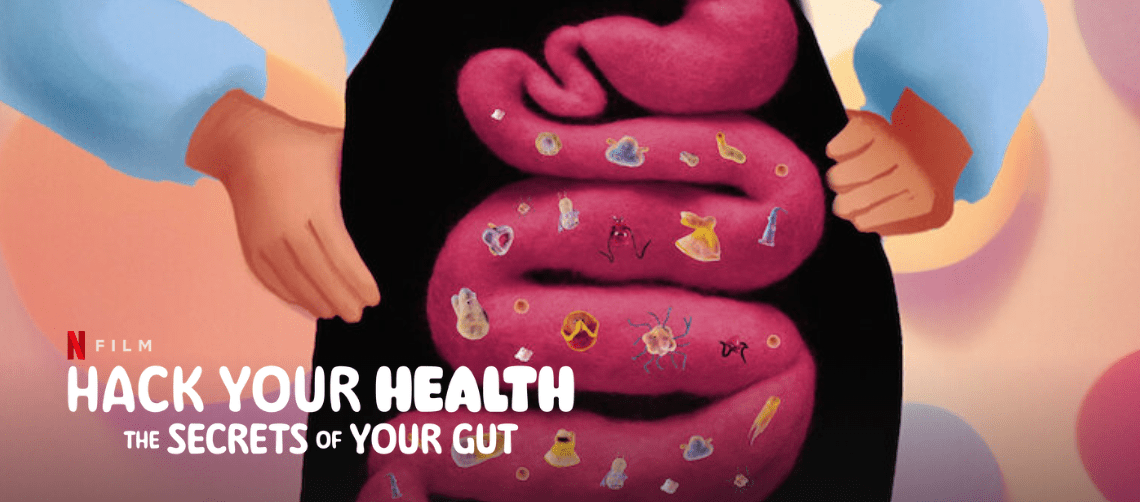Table of contents
...Is this “factory” within us working properly?
“Well chewed is half digested.” – Come and find out with us what this saying is all about in our new blog article.
Admittedly, we all know it: hastily eating at our desk or while driving, or carelessly reaching into the bag of chips next to our favorite TV show. We often eat food in stressful situations or don't actually think much about eating mindfully and taking time for our meals to enjoy them with all our senses.
Unfortunately, we don't give much thought to the fact that this causes many of us to suffer from flatulence, heartburn or constipation, often out of complacency. Have you ever asked yourself why that is? These common digestive issues may actually be related to stressed eating. To understand this better, let's take a closer look at how digestion normally works. Digestion can be defined as a type of breakdown of food to enable the breakdown of nutrients. Because basically we are not what we eat, but what we absorb. So what use is it for us to pay attention to healthy food if we completely ignore our digestion?
But where does this actually begin? In your mouth? Or maybe in your stomach? Digestion begins in the brain: If you close your eyes for a moment and imagine a bright yellow lemon whose juice you are squeezing, as soon as you open your eyes again you will notice that increased saliva has already formed in your mouth. This also applies to stomach acid production. Now let's further assume that we took the time to create a delicious salad with salmon. When the first bite reaches the mouth, the enzymes (substances that stimulate biochemical breakdown processes) in the saliva are already ready to break down the carbohydrates in the salad and the fat in the salmon. Chewing each bite thoroughly will help absorb the nutrients even better later. After swallowing the food, the next stop is the stomach, which secretes stomach acid. In addition to protecting against potential bacterial or viral invaders that may hide in our food, it is important that proteins are broken down and minerals in our food are released.

Sites of vitamin B 12 absorption and causes of deficiency. (3)
By the way, salmon is rich in vitamin B12, the absorption of which depends on stomach acid. In the stomach, the enzyme pepsin and stomach acid ensure that proteins are broken down and vitamin B12 is released. B12 now binds to the body's own transport proteins in the stomach, which transport the vitamin into the small intestine. Vitamin B12 is a critical nutrient. It supports neurological functions, protects both memory and keeps us in a good mood. Next, the partially digested food moves from the stomach to the small intestine, where over 95% of nutrient absorption occurs. To make this possible, the pancreas and gallbladder must work their “digestive magic.” The pancreas secretes enzymes to further break down proteins, carbohydrates and fat, and the gallbladder secretes bile. Bile helps pull fat from our food so that it can then be used by the body. Healthy fats are extremely important for our bodies because, for example, over 60% of our brain is made up of fat. In the large intestine, our fiber-rich salad serves as an additional meal for benign intestinal bacteria. These help us boost metabolism, maintain hormonal balance, and synthesize vitamins (for example vitamin K for our bones and biotin for healthy hair and nails). Fiber also prevents constipation. That's why it's important that we feed our microbiome with lots of fiber.
 Salmon, for example, contains healthy fats that are very important for us and our microbiome. (4)
Salmon, for example, contains healthy fats that are very important for us and our microbiome. (4)
For example, salmon contains healthy fats that are very important for us and our microbiome. (4) Provided we drink enough and eat a diet rich in fiber, rhythmic digestive contractions lead to the excretion of food residues. But we have forgotten one very important link in our “factory”: our nervous system , which regulates our entire digestion. Stress during meals has a particularly strong impact on this, which can disrupt normal digestive physiology. The body is in so-called “fight or flight” mode. This inhibits the entire digestive system, which can lead to frequent complaints. When we eat a meal while feeling stressed, we don't give any thought to eating, let alone chewing. Poorly chewed food is transported to a stomach that is not optimally prepared with acid. This leads to an unpleasant feeling in the upper abdomen. At the entrance to our stomach we have a kind of “protective gate” that prevents acid from getting back into the esophagus. Unfortunately, some of our most popular foods and drinks, such as coffee, chocolate, and alcohol, can contribute to this gate malfunctioning. Being overweight can add additional stress and an increased “fight or flight” mode can increase heartburn symptoms. While there are serious medical conditions that require the use of acid-blocking medications, taking them indiscriminately over a long period of time can be risky and increase the likelihood of calcium or vitamin B12 deficiency. In the small intestine, stress inhibits the digestive function of the pancreas and gallbladder. Bad bacteria can then break down the food, producing gas as a byproduct, leading to bloating. Stress suppresses normal contractions in the colon. Combined with an intake of far too little fiber and fluid, this leads to constipation.

Anatomy of the autonomic nervous system and its sympathetic (fight or flight) and parasympathetic (rest and digest) branches. Many organs receive signals from these. (5)
But if we feel relaxed while eating (“rest and digest” mode), this can really happen. Rhythmic contractions in the intestines gently move food along. We eat, we digest, we absorb, we excrete. By taking our time while eating, we have a positive influence on nutrient absorption. In summary, it's really good for us to take time to eat, breathe deeply, chew properly and relax. Our attitude towards meals influences digestion and ultimately the nutrients we absorb. So basically what we are and will become. Optimal health requires not only paying attention to what we eat, but also, How we eat. Our intestinal microbiome is also very happy about it! Learn more about your own microbiome!
Note
This article is intended for informational purposes only and should not be construed as medical information or instructions. The recipes are intended for inspiration and are not intended as therapeutic measures. If you have any health problems, we recommend that you contact a doctor or other expert immediately.
References
- Healthy Digestion – Not What, But How? | Courtney Jackson | TEDxMontrealWomen, https://www.youtube.com/watch?v=P6_36Axaeb
- Wong, Cw. (2015). Vitamin B12 deficiency in the elderly: Is it worth screening?. Hong Kong medical journal = Xianggang yi xue za zhi / Hong Kong Academy of Medicine. 21. 10.12809/hkmj144383. / https://www.researchgate.net/figure/Sites-of-vitamin-B-12-absorption-and-causes-of-deficiency-Abbreviations-B-vitamin-B-12_fig1_309856556
- Eckstein, Maria & Guerra-Carrillo, Belén & Miller Singley, Alison & Bunge, Silvia. (2016). In press version of ms.






